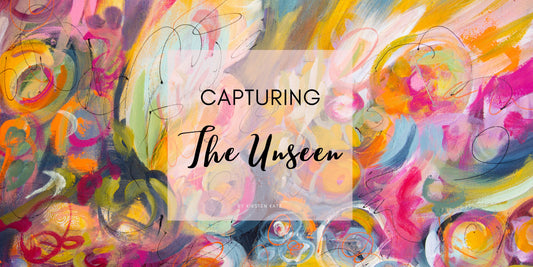Unleashing the Power of Imagination:
A Catalyst for Artists, Entrepreneurs, and Career-driven Individuals
Albert Einstein once stated, "Imagination is more important than knowledge." This thought-provoking quote holds profound implications for artists, creative entrepreneurs, and career-driven individuals striving to enhance their lives and businesses. In a world increasingly driven by data and empirical evidence, Einstein's words serve as a reminder of the boundless potential that imagination unlocks.
The Essence of Imagination
Imagination transcends the confines of existing knowledge, enabling us to envision what has not yet been discovered or created. It is the engine of innovation, allowing us to leap beyond current limitations and explore new horizons. For artists, it is the wellspring of creativity, enabling the conception of works that evoke profound emotions and provoke thought. For entrepreneurs, imagination is the cornerstone of innovation, paving the way for groundbreaking products and services. And for those on a career path, it is the catalyst for visionary leadership and problem-solving.
Nurturing Your Imagination
-
Embrace Curiosity: Curiosity fuels imagination. It drives us to ask "what if" and "why not," leading to the exploration of possibilities beyond the immediate scope of our knowledge. Encourage a mindset of perpetual learning and openness to new experiences.
-
Cultivate Creativity: Creativity is not reserved for the arts; it's a tool for problem-solving across all disciplines. Engage in creative activities outside your professional expertise. This cross-pollination of ideas can inspire innovative approaches to your work.
-
Dedicate Time to Dream: In our fast-paced world, it's vital to allocate time for reflection and daydreaming. These moments of pause allow your mind to wander and generate new ideas.
-
Surround Yourself with Diverse Perspectives: Collaboration with individuals from different backgrounds and disciplines can spark imagination. The clash of varied viewpoints can lead to the birth of ideas that might not have emerged in a homogenous group.
Applying Imagination to Your Life and Business
-
Problem-Solving: Leverage your imagination to envision novel solutions to challenges. Whether it's developing a unique marketing strategy or overcoming a creative block, imagining various scenarios and outcomes can reveal unexpected solutions.
-
Innovation: For entrepreneurs, the ability to imagine what others cannot see is invaluable. It's about seeing potential markets, creating new products, or improving services in ways that haven't been considered.
-
Personal Growth: Imagination isn't just about professional advancement; it's also about envisioning the person you want to become. It allows you to see beyond your current circumstances and limitations, guiding your personal and professional development journey.
-
Leadership: Visionary leadership is rooted in the ability to imagine a better future and inspire others to work towards it. By fostering an imaginative mindset, you can cultivate a culture of innovation and creativity within your team or organization.
Conclusion
In embracing Albert Einstein's perspective on the supremacy of imagination over knowledge, we unlock a universe of possibilities. For artists, it's the key to creating works that resonate on a profound level. For entrepreneurs, it's the foundation of innovation and the differentiation of their businesses in crowded markets. And for career-driven individuals, it's the essence of visionary leadership and personal growth.
Key Takeaways: Harnessing the Power of Imagination
-
Imagination Transcends Knowledge: It allows for the envisioning of possibilities beyond current understanding, leading to groundbreaking innovations and solutions.
-
Core to Creativity and Innovation: Imagination is essential not just for artists but for entrepreneurs and professionals in any field, driving the creation of unique products, services, and approaches.
-
A Tool for Problem-Solving: Imaginative thinking enables the conception of diverse solutions to complex challenges, fostering flexibility and adaptability.
-
Foundation for Personal and Professional Growth: By envisioning future possibilities, imagination guides individual development and the pursuit of goals beyond current limitations.
-
Leadership and Vision: Imaginative leaders inspire others by painting a compelling vision of what could be, fostering a culture of innovation and progress.
In the journey to make our lives and businesses better, let us not forget that while knowledge is vital, it is imagination that truly propels us into the realm of the extraordinary. Cultivating an imaginative mindset enables us to dream bigger, innovate beyond boundaries, and transform our aspirations into reality, Kirsten.





